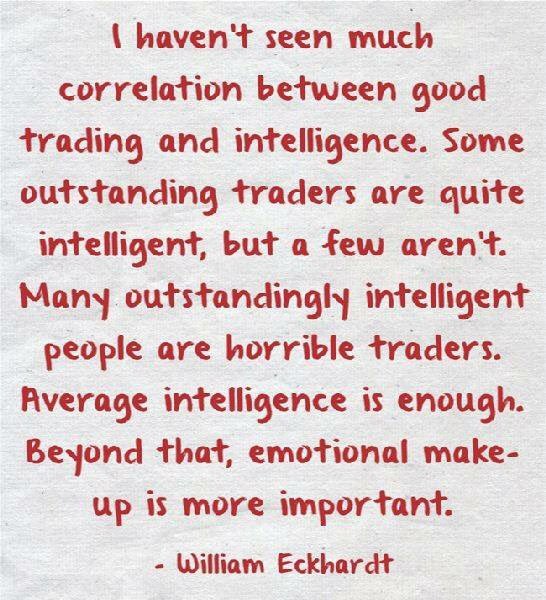
Not landlords. Not anyone I know. Ever. Tokyo commercial land prices.




Everyone knows that chasing price is usually not beneficial, we either end up catching the move too late, or we get poor trade location, which makes it more difficult to manage the trade.
However, there are other forms of chasing that are just as common, maybe more common, and just as counter-productive.
Traders who are not profitable are often too quick to chase after new set-ups and indicators, or a different chat room, if that’s your thing. Obviously, we need to have a trading edge, whether it is from the statistical perspective of a positive expectancy, or simply the confidence in a particular discretionary strategy such as tape reading, following order flow, market profile, etc.
Chasing a trade is the fear of missing out. The fear of missing out is associated with various emotions, including regret. There’s a lot of talk about fear and greed in trading, but the power of regret is often overlooked. Some of my own worst trades, and those of my clients, often have a ‘regret from missing a prior opportunity’ component. When I finally finish my book on the psychology of financial risk taking, I will include much about this overlooked but very powerful emotion.
Somewhat related to chasing a trade, is impulse trading. They both have in common the underlying feeling of the fear of missing out. It’s tempting for me to talk about impulse trading here, but it really deserves its own piece.

Respect the price action but never defer to it.
The action (or “eyes”) is a valuable tool when trading but if you defer to the flickering ticks, stocks would be “better” up and “worse” down-and that’s a losing proposition. This is a particularly pertinent point as headlines of new highs serve as sexy sirens for those on the sidelines. (more…)

1. Emotional bias: the tendency to believe the things that make you feel good and to disregard things that make you feel bad. In trading terms, this means ignoring the bad news and focusing on the good news. It’s called losing objectivity; you don’t recognise when things go wrong because you don’t want to.
2. Expectation bias: the tendency to believe in things that you expect. In financial terms this means not bothering to analyse, test, measure or doubt the conclusion you expect or hope for. It is also known as the law of small numbers – believing in something with little real evidence.
3. The disposition effect: the tendency to cut your profits and let your losses run – the opposite of what a trader should be doing. Making small profits and big losses is a recipe for disaster.
4. Loss aversion: the tendency to value the avoidance of loss more highly than the making of gain. (more…)




How Professionals Minimize Losses page 73-75:
Blaming ‚them’ is a psychologically and socially acceptable way to avoid blaming oneself. Yet professionals can, and do, make mistakes. When they buy a stock and it doesn’t go up (even if it doesn’t go down) that’s wrong enough for them, simply because it did not perform as expected. The pro reasons that the stock went against his judgement, so he sells it. And he doesn’t expect to be perfect, any more than a professional baseball player expects to bat 1.000. Knowing that losses are inevitable, he seeks to minimize them at all times. To be sure, his ability to take a small loss is enhanced by the benefit of not having to reckon with commission costs, but even so, if he were relatively incompetent he wouldn’t last long in the business; the loss might be less, or slower to pile up, but the return on invested capital would be dismal enough eventually to send him to another field.
Rule One of the professional trader is: When a stock doesn’t do what you expect it to do, sell it. (more…)
The Desire
If you are trading just for the money you will quit before you are successful, Why? Anyone without a love for the game will quit during the long difficult learning process. After hundreds of hours of work and years of trading with nothing but a loss to show for all the effort anyone with common sense will think it is too hard and just quit. Those with a love and passion for trading will eventually succeed and usually make six figures or become a millionaire for their efforts. Those that do a cost benefit analysis in the first few years will generally quit due to the math.
The Skill
A trader must have the skill to trade in three dimensions. The management of the mind, the method, and money management are all crucial for success. Traders must have the discipline and perseverance to trade robust systems through different market environments without giving up. They must have the ability to accept and deal with their thoughts and emotions as they arise during both winning and losing streaks. Risk must be managed on every single trade without the ego causing bets so big that they put your future trading at risk. The trader must also have the skill to not let fear take away the traders ability to pull the trigger on a good entry.